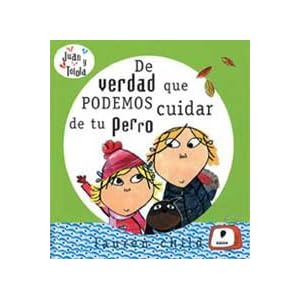And then, I introduced “All about…” and “How To” books. It was like I had found the key to their
writing souls. Apparently, just like
some people do not consider themselves nonfiction readers, some people may not
consider themselves nonfiction writers.
It doesn’t mean we can neglect a genre all-together but it does makes
sense that we might find more interest and joy in one than the other and that
is okay!
One of my AFAW (Ayer
fui a Wal-Mart) students wrote the most elaborate book about how to paint a
car. It turns out that his dad works in
a shop that paints cars and this eight-year-old has spent many a Saturday
morning at that shop with his dad.
Because he was so familiar with his topic and so excited to share his
knowledge, his writing oozed voice and development of ideas.
My all-time favorite “How to” book was written by a little
girl that struggled academically and behaviorally. She was one of seven children and missed many
days of school. Her book was titled “Cómo darle un baño a tu
bebe”. It was the most precious
book with excellent illustrations. I
WISH I would have kept a copy of it but I didn’t. The book was filled with evidence of a
seven-year-old that had participated in bathing numerous siblings. There were lots of details about safety and
to be careful “porque pueden ser muy
resbalosos”!
I came across this book at the library last week and I
thought it might be some inspiration for our AFAW students.

De verdad que podemos cuidar de tu perro by Lauren Child is a fictional story with a “how to”
embedded inside:
“Muy bien”, dice Marv. “Pero para poder cuidar de Chispas hay que
saberse muy bien estas normas: Nada de
bombones. Nada de pasteles. Nada de dulces de ningún tipo. No hay que dejarle que haga agujeros… Ni que persiga a los pájaros. Ni que se meta en los charcos. Y sobre todo NUNCA quitarle la correa.”
What a great frame for getting students started on how to
writing!
Para poder cuidar de ______ hay que saberse muy bien estas normas: Nada de ____________. Nada de _____________. Nada de ____________ de ningún tipo. No hay que ______________________...Ni que ____________________. Ni que ______________________. Y sobre todo NUNCA _____________________________________________________.
Here is my little attempt at imitation. Paco is our mischievous elderly dog.
Para poder cuidar de Paco hay que saberse muy
bien estas normas: Nada de chocolate. Nada de chicle. Nada de dulces de ningún tipo. No hay que dejarle que duerma en las camas…Ni
que se acueste en los sillones. Ni que
se meta en el cuarto del bebé. Y sobre
todo NUNCA dejarle escapar por la puerta principal porque le encanta explorar
el vecindario.
Nothing fancy but it is a good exercise in word choice and
sentence fluency. If you don’t have a
lot of experience with mentor texts, I love using Jeff Anderson’s Invitation to
Notice and Invitation to Imitate. Trying
out small paragraphs like this one helps us build our skills and our confidence by
imitating published authors.
Do you have any AFAW students? Have you invited them to try writing in other genres?
Just seeing this as I have started teaching 2nd grade bilingual this year--and YES! This is exactly what my students do/say "AFAW"! (or Dollar Tree or El Mol". I have found them very interested in science and non-fiction so I love your sentence frame and that connection to a book. I am focusing on writer's workshop. Thanks for your work!
ReplyDelete